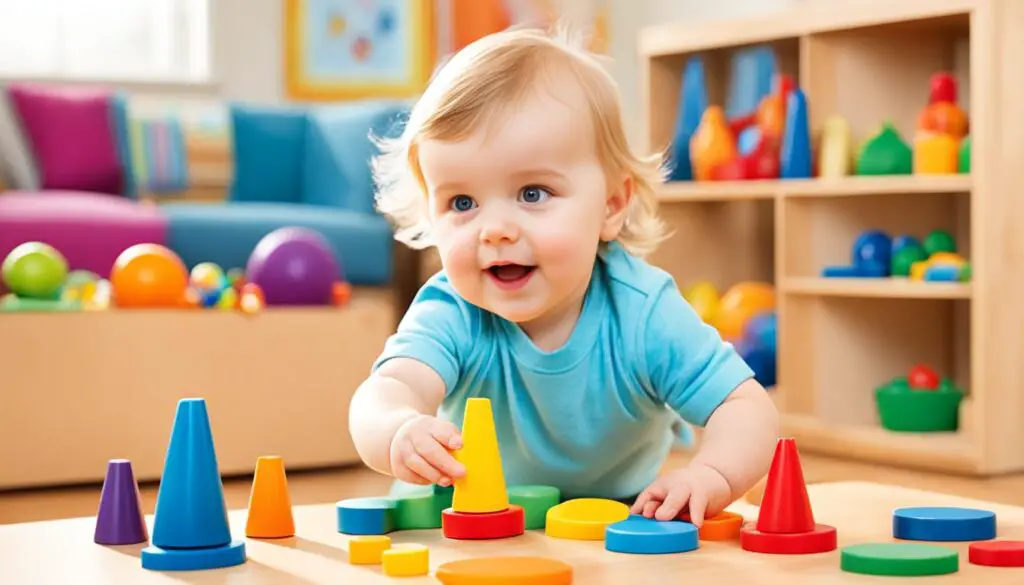
Unveiling Childhood Cognitive Development: Stages and Strategies
Childhood cognitive development refers to the growth and maturation of a child’s thinking skills and abilities. It plays a crucial role in their overall development, laying the groundwork for future learning and academic success. Understanding the stages of cognitive development and implementing effective strategies can significantly enhance a child’s cognitive growth and learning potential.
According to Jean Piaget’s theory of cognitive development, children go through four key stages in their cognitive growth. The first stage is the sensorimotor stage, which occurs from birth to about 2 years old. During this stage, infants learn primarily through their senses and motor actions, developing object permanence and basic problem-solving skills.
To promote optimal cognitive development in children, it is essential to provide them with a supportive and stimulating environment. Here are some strategies you can implement:
Key Takeaways
- Childhood cognitive development is crucial for a child’s overall growth and future academic success.
- There are four main stages of cognitive development: sensorimotor, preoperational, concrete operational, and formal operational.
- The sensorimotor stage occurs from birth to around 2 years old, where infants learn through their senses and motor actions.
- To support cognitive development, provide a nurturing and stimulating environment for children.
- Engaging children in cognitive stimulation activities can enhance their cognitive growth and learning potential.
Key Stages of Childhood Cognitive Development
According to Jean Piaget’s theory of cognitive development, children progress through distinct stages of cognitive growth. These stages, known as the sensorimotor stage, preoperational stage, concrete operational stage, and formal operational stage, each bring unique changes and advancements in a child’s cognitive abilities.
Sensorimotor Stage
The sensorimotor stage is the first stage of cognitive development, lasting from birth to approximately two years old. During this stage, infants explore and understand the world primarily through their senses and motor actions. They develop the concept of object permanence, understanding that objects exist even when they are out of sight. Infants also begin to master basic problem-solving skills, such as reaching for objects and using simple gestures to communicate their needs.
Preoperational Stage
The preoperational stage occurs between the ages of two and seven. During this stage, children develop more advanced language and symbolic thinking skills. They engage in pretend play and start to use symbols, such as words and images, to represent objects and ideas. However, their thinking is still egocentric, meaning they struggle to understand others’ perspectives. Conservation, the understanding that quantities remain the same despite changes in appearance, is also a challenge during this stage.
Concrete Operational Stage
The concrete operational stage, which typically occurs from the ages of seven to eleven, marks a significant advancement in a child’s cognitive abilities. Children in this stage develop logical thinking skills and can perform mental operations on concrete objects or events. They become capable of conservation, reversibility, and classification. They also begin to understand cause-and-effect relationships and engage in more complex problem-solving.
Formal Operational Stage
The final stage of cognitive development, the formal operational stage, starts around the age of eleven and continues into adulthood. During this stage, individuals develop the ability to think abstractly and hypothetically. They can reason logically and engage in deductive and inductive reasoning. This stage allows for more complex problem-solving and the exploration of moral and ethical issues.
The progression through these stages of cognitive development plays a crucial role in shaping a child’s understanding of the world and their ability to think, learn, and solve problems. By recognizing and supporting children’s development within each stage, parents, caregivers, and educators can help facilitate optimal cognitive growth and learning potential.

| Stage | Age Range | Main Characteristics |
|---|---|---|
| Sensorimotor | Birth to 2 years old | Development of object permanence and basic problem-solving skills |
| Preoperational | 2 to 7 years old | Advancement in language and symbolic thinking, egocentricity |
| Concrete Operational | 7 to 11 years old | Development of logical thinking, conservation, classification |
| Formal Operational | 11 years old and up | Abstract thinking, hypothetico-deductive reasoning, complex problem-solving |
Strategies to Nurture Cognitive Development in Children
Promoting cognitive development in children is essential for their overall growth and success. By implementing effective strategies and engaging in cognitive stimulation activities, parents and caregivers can create an environment that supports and encourages cognitive development. Here are some strategies that have been proven to be effective:
1. Encourage active exploration and hands-on learning: Providing children with opportunities to explore their surroundings, interact with objects, and engage in hands-on activities helps to stimulate their cognitive development. Encourage them to ask questions, experiment, and discover new things through play and exploration.
2. Foster language and communication skills: Language development is closely linked to cognitive development. Engage in meaningful conversations with children, read books aloud, and encourage them to express themselves through language. By expanding their vocabulary and communication skills, you can promote their cognitive growth.
3. Support problem-solving and critical thinking: Encourage children to think critically and solve problems independently. Present them with age-appropriate puzzles, games, and challenges that require them to use their problem-solving skills. This helps to develop their reasoning abilities, logical thinking, and cognitive flexibility.
4. Provide a rich and stimulating learning environment: Create an environment that is rich in educational resources, such as books, toys, and activities that promote cognitive development. Engage in activities that involve counting, sorting, matching, and categorizing to enhance their cognitive skills. Offer a variety of stimulating experiences to keep their minds active and curious.
By incorporating these strategies into daily routines, parents and caregivers can actively contribute to the cognitive development of children. Remember to be patient, provide positive reinforcement, and tailor the activities to the child’s age and abilities. By promoting cognitive development, we empower children to become confident, resilient, and innovative individuals.
FAQ
What is childhood cognitive development?
Childhood cognitive development refers to the growth and maturation of a child’s thinking skills and abilities.
Why is childhood cognitive development important?
Childhood cognitive development is crucial for a child’s overall development and sets the foundation for future learning and academic success.
What are the key stages of childhood cognitive development?
The key stages of childhood cognitive development, according to Jean Piaget’s theory, are the sensorimotor stage, preoperational stage, concrete operational stage, and formal operational stage.
What happens during the sensorimotor stage?
The sensorimotor stage occurs from birth to about 2 years old. During this stage, infants learn primarily through their senses and motor actions, developing object permanence and basic problem-solving skills.
How can I nurture cognitive development in children?
To nurture cognitive development in children, provide a supportive and stimulating environment. Some effective strategies include engaging in cognitive stimulation activities and promoting problem-solving and critical thinking skills.